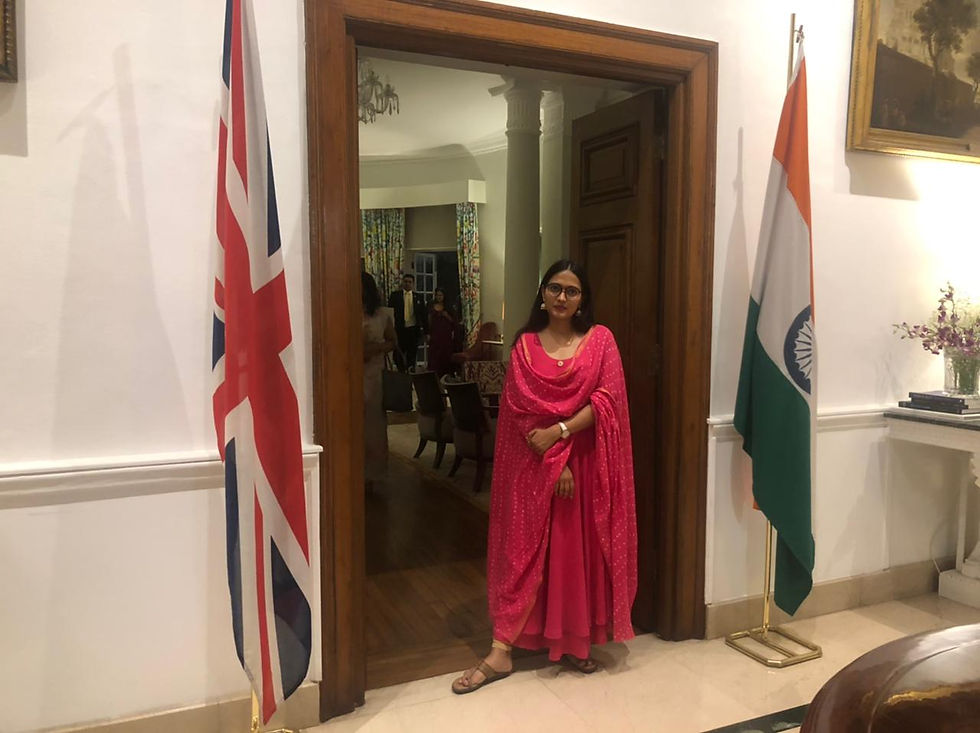A journey towards Quantum Computing
- yadavdips23
- Apr 4, 2022
- 3 min read
During my recent interactions with Physics students, one question is common among them: How to choose a field for research that has an excellent future aspect in academia and industry. It is pretty appropriate to choose a field of interest but without much exposure, making a choice is as tricky as standing at a crossing and confused about which direction to follow for the destination. From the outside, every field looks great and seems to have good potential, but only you get to know the reality once you enter. A specific field can be that one career choice you ever dreamt of or as bad as a daunting dream you never imagined either because of diminishing opportunities or lack of interest. So, I thought, why not reach out to people already working on a specific topic and listen to their stories. This blog is dedicated to one of my classmates in master’s, Vinay Tripathi, who is currently a Ph.D. scholar at the University of Southern California. As I forgot to record it, I thought to share it via this blog. As this blog is the crux of the whole one-hour session, in the most exact words possible, so maybe it is not that bad!
Journey: Talking about the field, he is a theoretical Physicist working on Quantum Computing which comes under a broad category of Quantum Information. Like many other students, after a master's degree, he wanted to pursue a Ph.D. from abroad and hence started applying during the final semester. Although working on a relatable master's project, decent SOP, and LOR, he was getting rejections because of insufficient research experience. Meanwhile, he also applied for paid internships in Singapore (CQT-NTU & NUS) and China (Tim Byrnes Lab in association with NYU Shanghai) and got selected for the latter one. This 6-month project gave him much more advanced exposure, and his hard work led him to a PhD position under the same supervisor in association with NYU (US). He had to clear GRE General, GRE Physics, and TOEFL to get the official offer letter. As he scored well in all the exams, he applied to other Universities and got selected for the University of California, Riverside. The hustle was not over yet; after two years, he had to shift to his current University because of a change of supervisor.
Quantum Computing: Quantum computing has qubits similar to digital systems which have bits. The only difference is that qubits can also be the superposition of states 0 and 1, giving a whole new perspective. Building the algorithm and models is the primary task of being a theoretical researcher, whereas working on different physical systems comes under Experimental work. A whole new algorithm is written for quantum computing, similar to digital electronics, to design a working system (the most straightforward example can be: an adder or subtractor). Talking about architecture, superconducting systems are currently under research as they provide the Josephson Junction for the required anharmonic potential. Due to Josephson Junction, the system potential is now a cosine function and hence after the taylor expansion, gives non-linear terms. This leads to energy states which are not equidistant and hence serve the purpose. Google and IBM are leading tech companies working on Superconducting quantum computers. Besides this, ion trapped and NMR were also experimented with for physical systems, but superconductors outperformed both. So, superconductors along with other circuit elements is the potential systems under research.
Scope: Quantum computing has emerged as one of the leading research fields in the last few decades, and there are a lot of funding opportunities available. From the point of research, theoretical and experimental both are running parallelly. Most of India's leading institutes (IITs, IISC Bangalore, IISERs, TIFR, HRI Allahabad, ISI, NITs, and many others) have a group working in this field, although they mainly work on the theoretical aspects. However, a group in TIFR provides good research opportunities in Experimental quantum computing. One can always look out for opportunities outside India, for which prior research experience is always a must. Quantum computing is definitely a hot topic and provides many opportunities in academia and industry. However, before you conclude having a Ph.D. in this topic, do have some internships and projects after which you can decide if it interests you or not, as projects are necessary to explore the field more and open options for GOOD Ph.D. Positions of your choice.


Comments